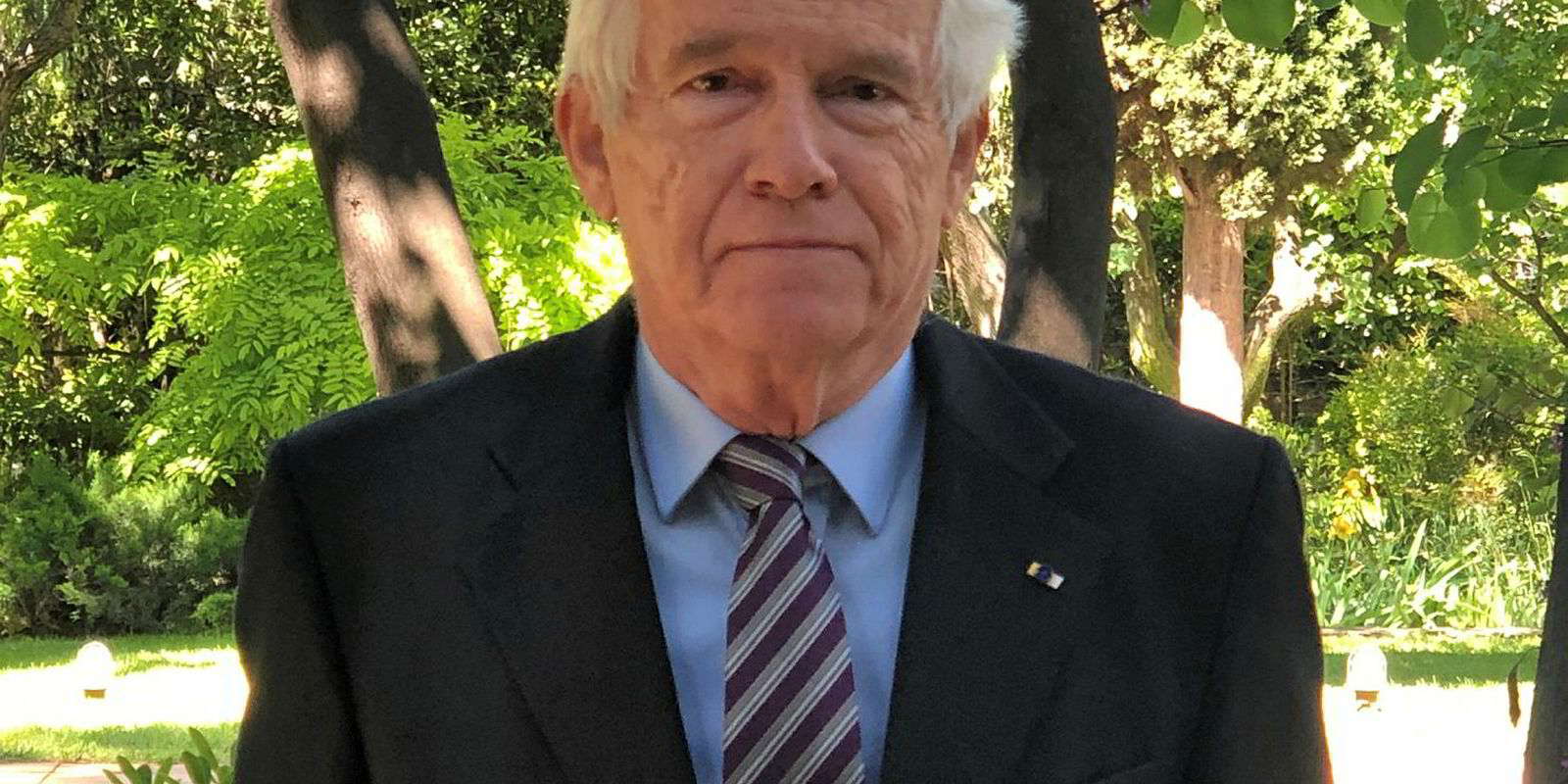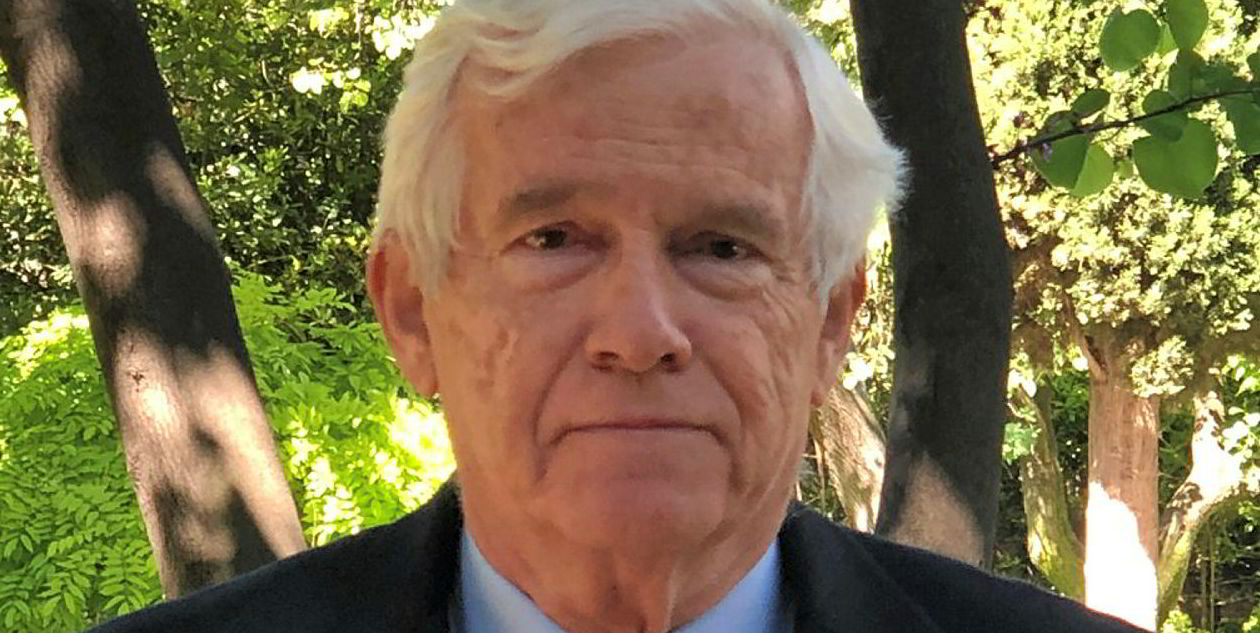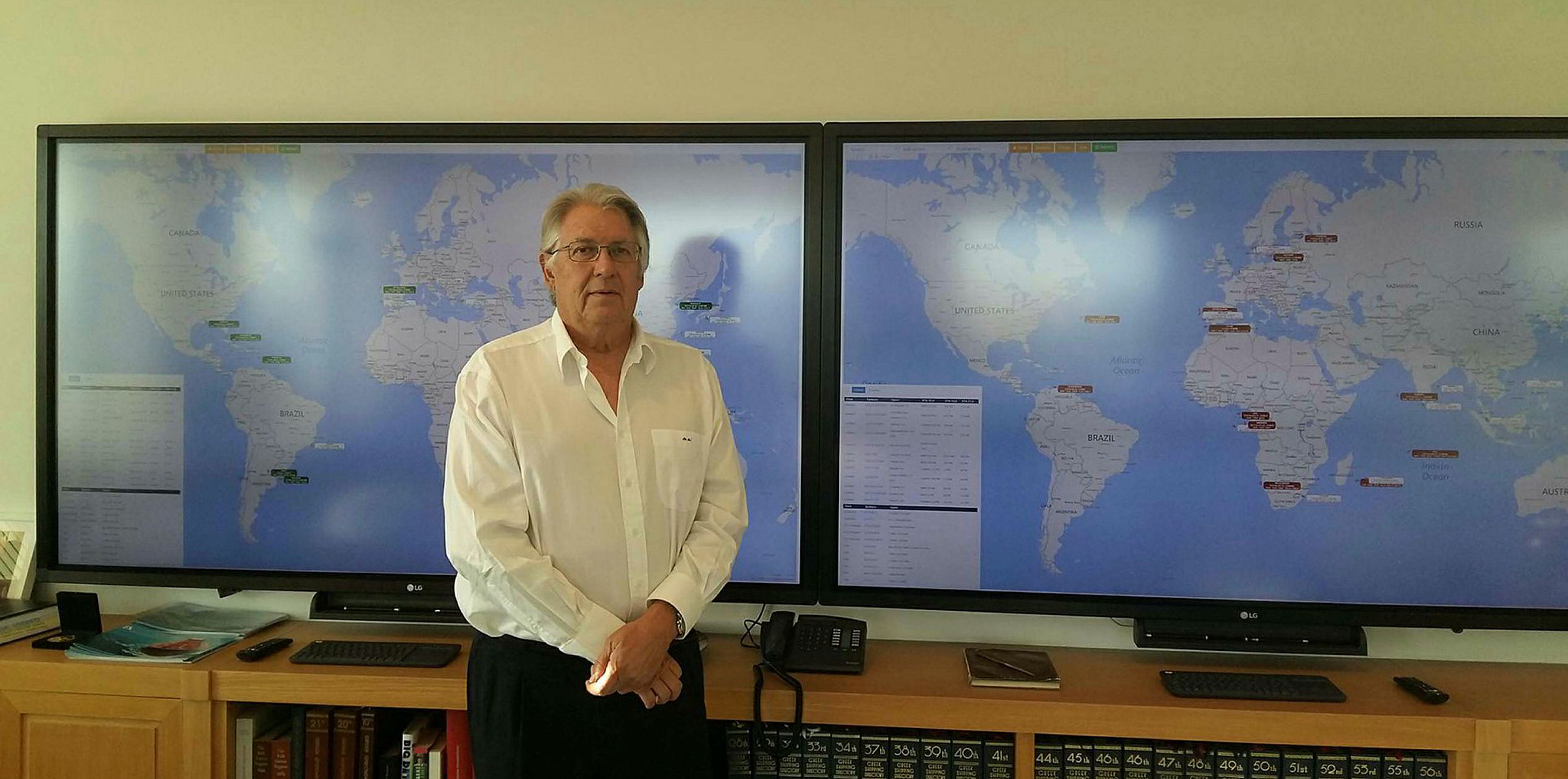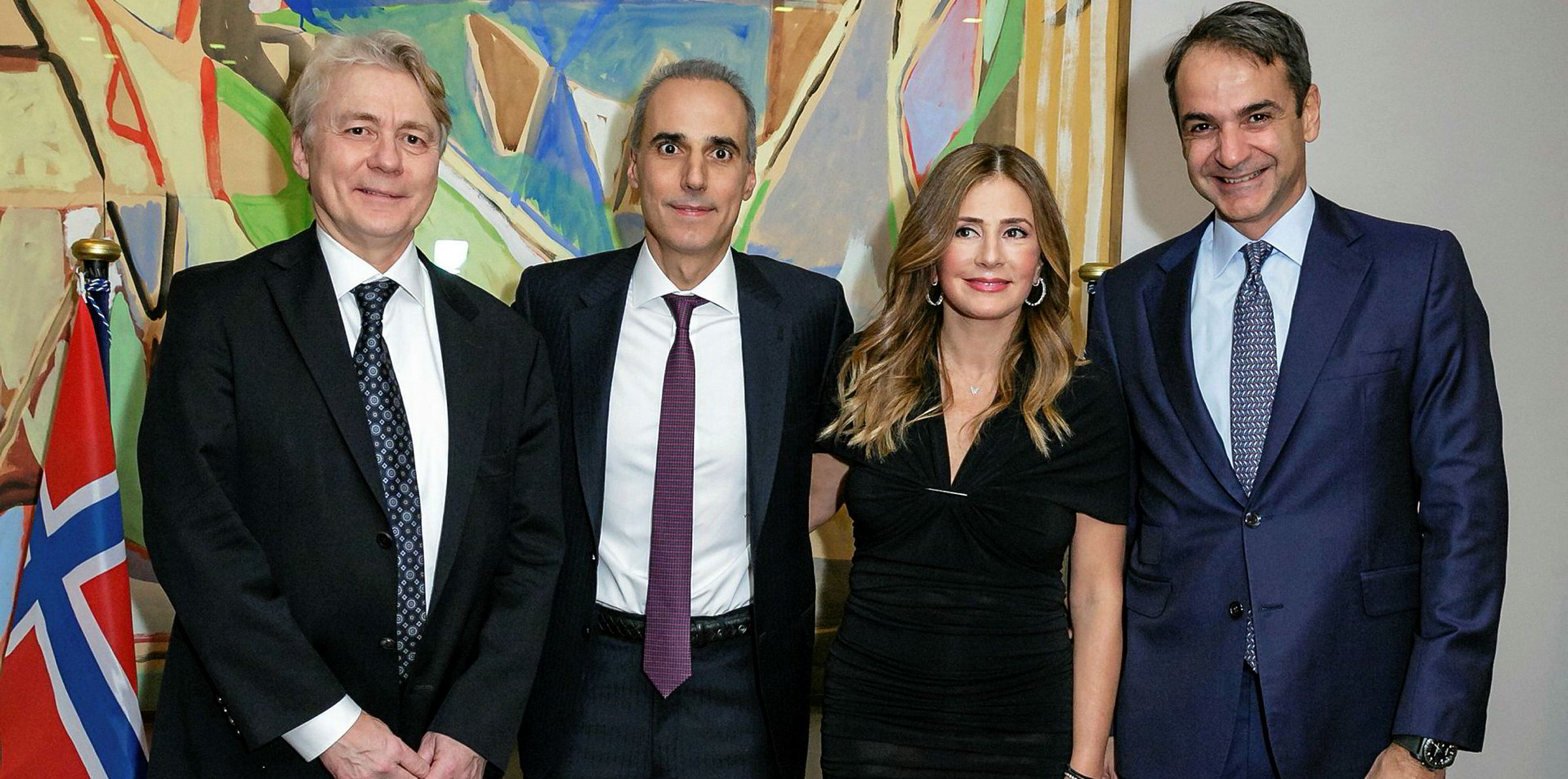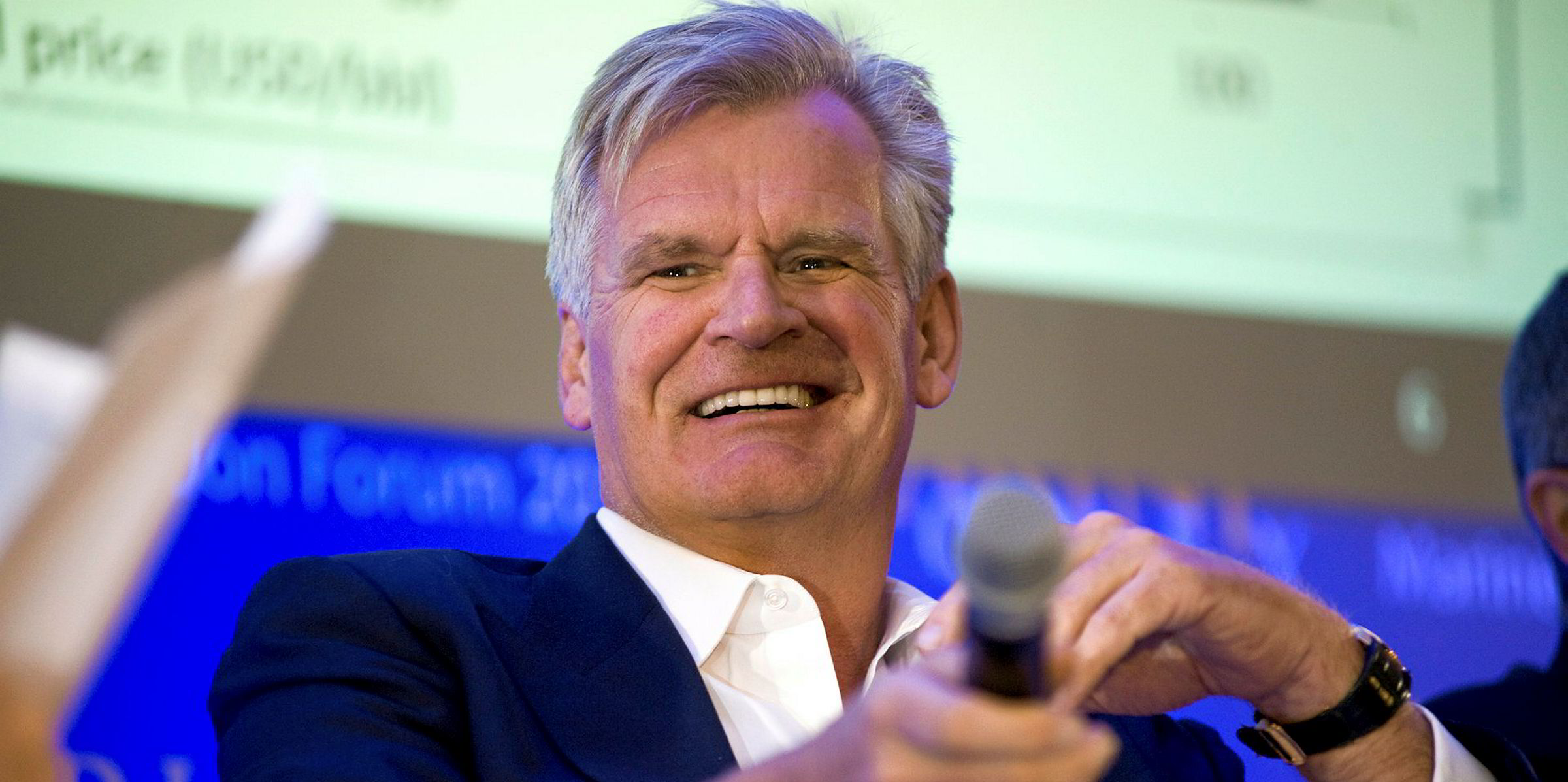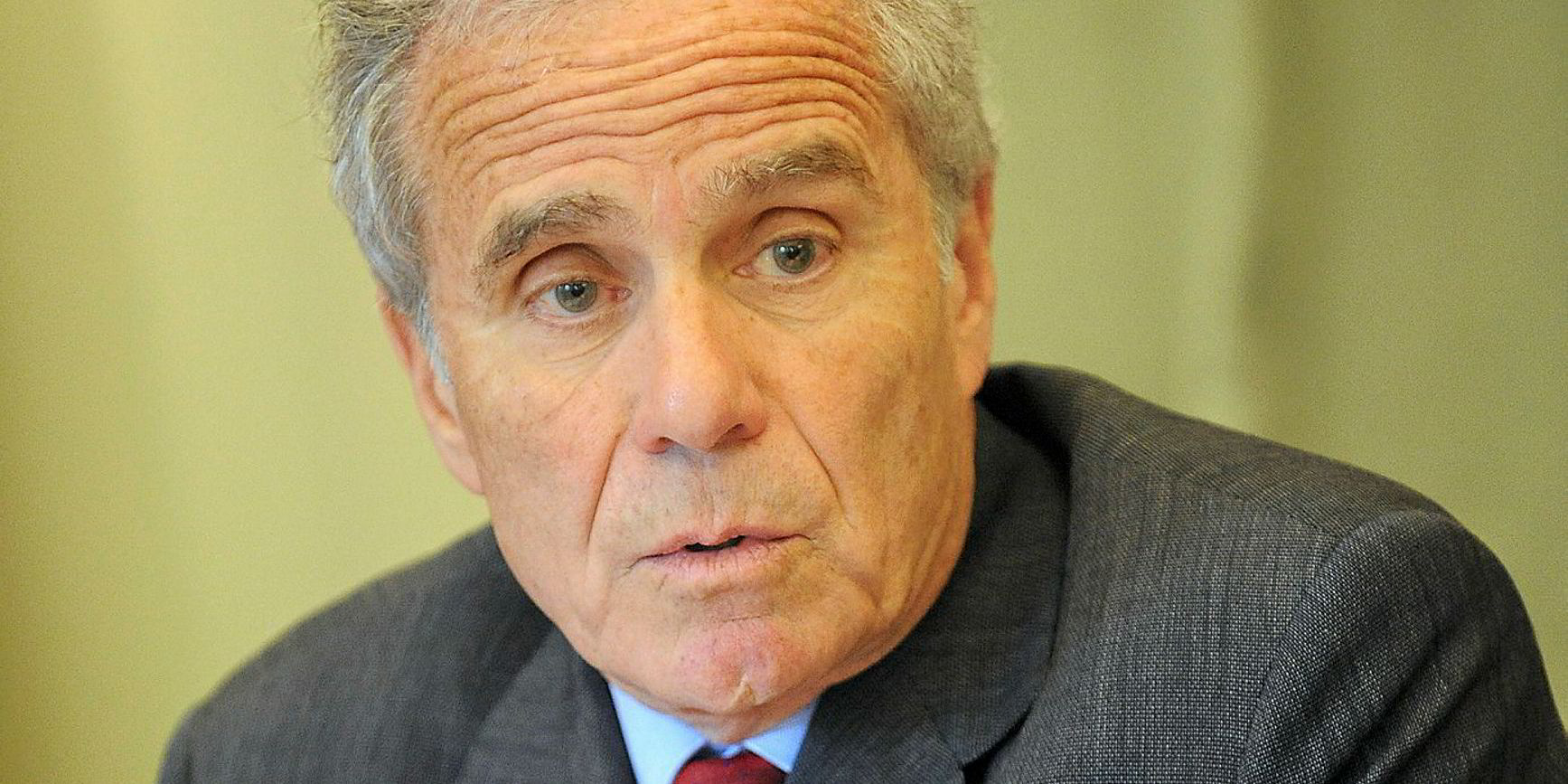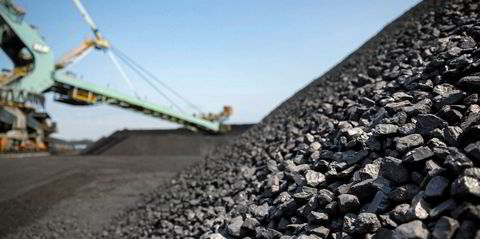Wheeling and dealing behind closed doors was a good policy to help Greek shipping grow and prosper in the years after World War II. However, it will no longer do in a rapidly changing, interconnected world with new priorities, one of the country's highest-profile shipowners tells TradeWinds.
“We can’t hide in our shell any more,” Panos Laskaridis says.
Laskaridis, co-principal of major reefer and dry bulk company Lavinia Corp, has been leading from the front in efforts to make Greek shipping more vocal.
Engaging owners
Since 2018, he has been president of the European Community Shipowners’ Associations (ECSA) — the main organisation representing shipowners on the European continent.
He was part of a quartet of Greeks who were leaders in major international shipping groups that year: Nikolas Tsakos as the head of independent tanker owners’ association Intertanko, John Platsidakis at dry bulk body Intercargo and Anastasios Papagiannopoulos, who was president of Bimco until last month.
The quartet’s ascendancy reflected a sea change in the mindset of Greek owners, away from the “conservative” approach that had traditionally put them in a defensive position, especially when policy matters were discussed.
“Greeks were always strong on technical and operational matters,” Laskaridis says. “They actively participated in promoting or resisting new technical regulations — almost always successfully.”
However, Greek shipowners were much less engaged when wider and more abstract issues were discussed — either because they were uninterested, or lacked the coordination and clout to intervene, Laskaridis says.
“We were always weak on policy and strategy matters... We were defensive," he says. "We would always just react to French, German or Dutch positions. We never went out with our own position to put others on the spot.”
Taking a back seat worked well for some time, but not any more.
Over the past couple of years, we [the UGS] have been producing position papers and proposals non-stop
Panos Laskaridis
“Problems have got bigger," Laskaridis says. "Greenhouse gases and sulphur-free fuel are global problems now, all the world talks about them. We have to get out, present our own positions and influence the debate.”
Shaping policy
He insists the Union of Greek Shipowners (UGS) has realised that. The Piraeus-based organisation set up a website three years ago and has been regularly commenting on industry developments since.
“Over the past couple of years, we [the UGS] have been producing position papers and proposals non-stop,” Laskaridis says.
These papers have played a key part in shaping the policy of the Greek government, which last month submitted its own proposals about the 2020 sulphur cap and greenhouse gas emissions to the IMO.
The cooperation was fruitful, with both the Greek government and the UGS expressing their satisfaction with the outcome of the IMO meeting.
Some Greek shipowners have started reaching out to non-governmental organisations, which they have usually been at loggerheads with.
The two sides have found common ground on calls for the IMO to adopt slow-steaming as a measure to start cutting greenhouse gas emissions.
In their new, proactive stance, Greek shipowners are emulating their counterparts from northern Europe, who Laskaridis believes have always had more clout with the continent’s policymakers.
“They do more lobbying, have more contacts and they support political campaigns," he says. "In the eye of the European Commission and in much of the European public, this led to northerners having a good image and southerners a bad one.”
However, Laskaridis dismisses worries by some fellow Greek owners that northern Europeans deliberately antagonise them.
“There’s a widespread impression in Greece that the northerners are fighting us but that’s not true,” he says.
Legitimate interests
If northern European shipping has so far had more clout with policymakers, it is simply due to its very nature of being tied to local, shorthaul trades and activities.
“They therefore need European politicians more and do more to cultivate them,” he says.
However, he is quick to add that it is about time that the long-distance global shipping sector, in which southern Europeans thrive, starts pulling its weight too.
“Northern European shipping has totally legitimate interests, of course," Laskaridis says. "But this doesn’t alter the fact that 80% of European shipping is of the oceangoing, tramp kind. Europe depends on it to not freeze or starve.”
